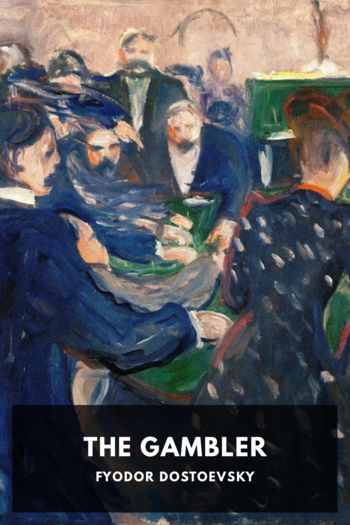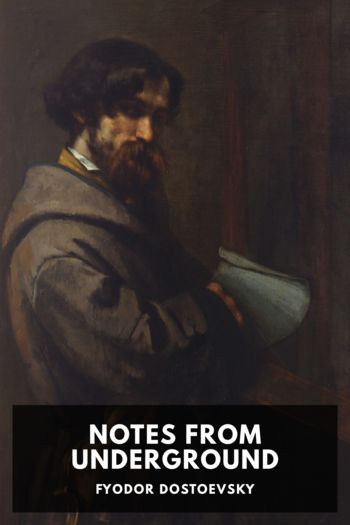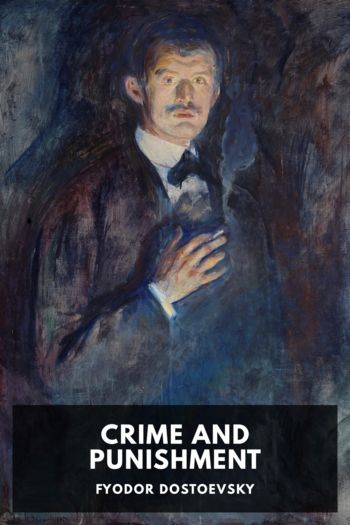Poor Folk by Fyodor Dostoevsky (best fiction books to read .TXT) 📕

- Author: Fyodor Dostoevsky
Book online «Poor Folk by Fyodor Dostoevsky (best fiction books to read .TXT) 📕». Author Fyodor Dostoevsky
Truly I could not say what we did not talk about during those painful, yet rapturous, hours when, by the trembling light of a lamp, and almost at the very bedside of my poor sick mother, we kept midnight tryst. Whatsoever first came into our heads we spoke of—whatsoever came riven from our hearts, whatsoever seemed to call for utterance, found voice. And almost always we were happy. What a grievous, yet joyous, period it was—a period grievous and joyous at the same time! To this day it both hurts and delights me to recall it. Joyous or bitter though it was, its memories are yet painful. At least they seem so to me, though a certain sweetness assuaged the pain. So, whenever I am feeling heartsick and oppressed and jaded and sad those memories return to freshen and revive me, even as drops of evening dew return to freshen and revive, after a sultry day, the poor faded flower which has long been drooping in the noontide heat.
My mother grew better, but still I continued to spend the nights on a chair by her bedside. Often, too, Pokrovski would give me books. At first I read them merely so as to avoid going to sleep, but afterwards I examined them with more attention, and subsequently with actual avidity, for they opened up to me a new, an unexpected, an unknown, an unfamiliar world. New thoughts, added to new impressions, would come pouring into my heart in a rich flood; and the more emotion, the more pain and labour, it cost me to assimilate these new impressions, the dearer did they become to me, and the more gratefully did they stir my soul to its very depths. Crowding into my heart without giving it time even to breathe, they would cause my whole being to become lost in a wondrous chaos. Yet this spiritual ferment was not sufficiently strong wholly to undo me. For that I was too fanciful, and the fact saved me.
With the passing of my mother’s illness the midnight meetings and long conversations between myself and Pokrovski came to an end. Only occasionally did we exchange a few words with one another—words, for the most part, that were of little purport or substance, yet words to which it delighted me to apportion their several meanings, their peculiar secret values. My life had now become full—I was happy; I was quietly, restfully happy. Thus did several weeks elapse. …
One day the elder Pokrovski came to see us, and chattered in a brisk, cheerful, garrulous sort of way. He laughed, launched out into witticisms, and, finally, resolved the riddle of his transports by informing us that in a week’s time it would be his Petinka’s birthday, when, in honour of the occasion, he (the father) meant to don a new jacket (as well as new shoes which his wife was going to buy for him), and to come and pay a visit to his son. In short, the old man was perfectly happy, and gossiped about whatsoever first entered his head.
My lover’s birthday! Thenceforward, I could not rest by night or day. Whatever might happen, it was my fixed intention to remind Pokrovski of our friendship by giving him a present. But what sort of present? Finally, I decided to give him books. I knew that he had long wanted to possess a complete set of Pushkin’s works, in the latest edition; so, I decided to buy Pushkin. My private fund consisted of thirty roubles, earned by handiwork, and designed eventually to procure me a new dress, but at once I dispatched our cook, old Matrena, to ascertain the price of such an edition. Horrors! The price of the eleven volumes, added to extra outlay upon the binding, would amount to at least sixty roubles! Where was the money to come from? I thought and thought, yet could not decide. I did not like to resort to my mother. Of course she would help me, but in that case everyone in the house would become aware of my gift, and the gift itself would assume the guise of a recompense—of payment for Pokrovski’s labours on





Comments (0)